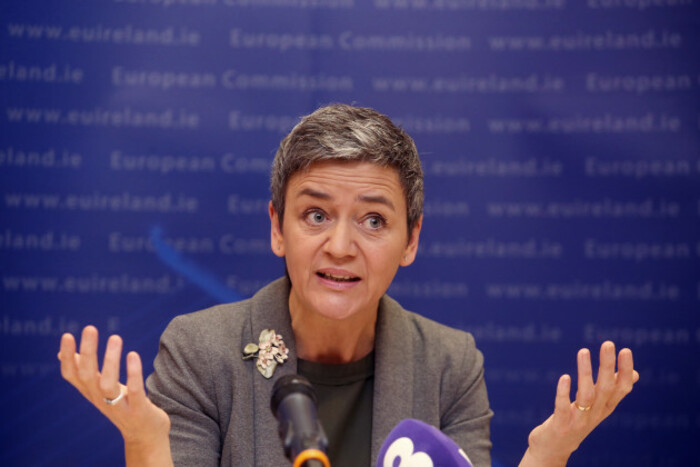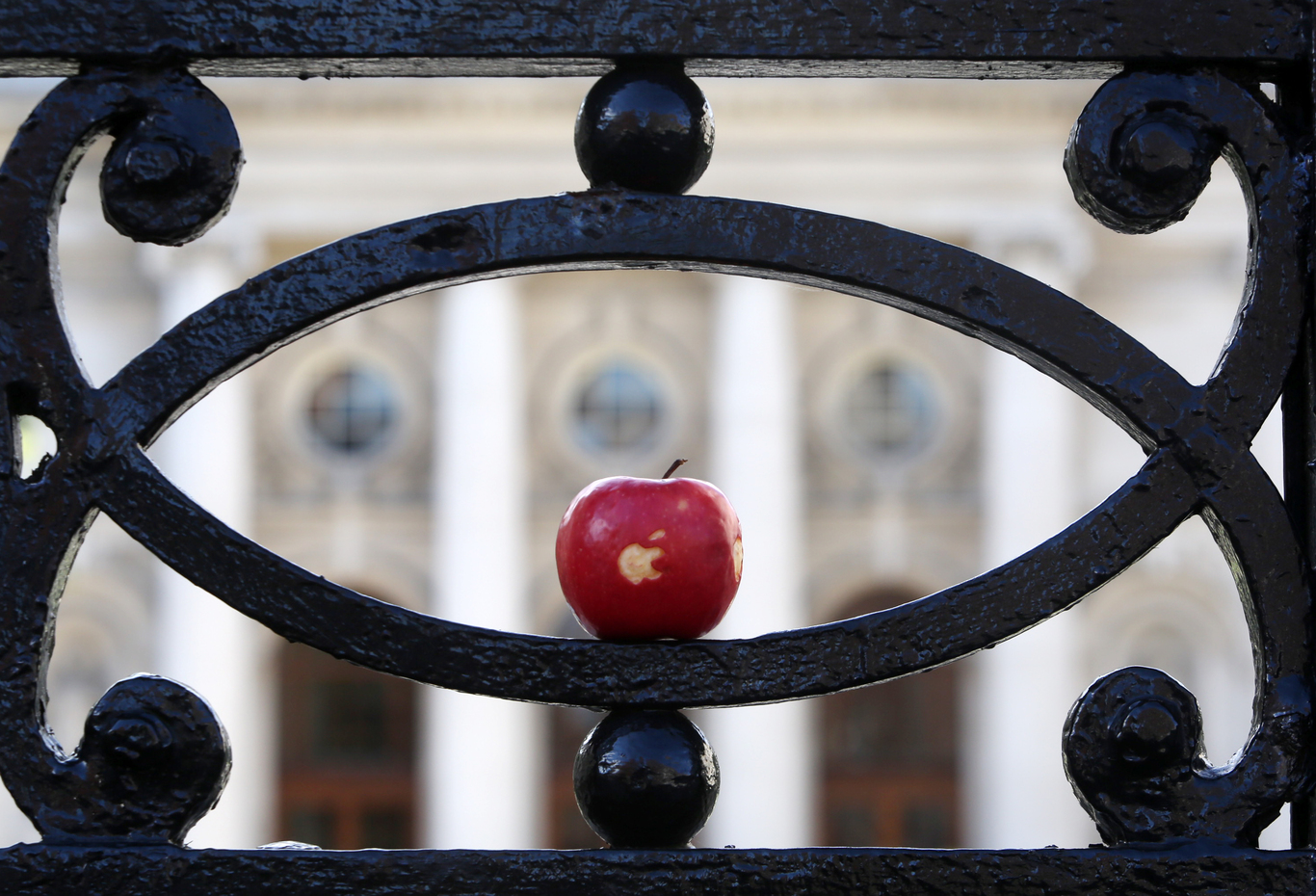Ireland is expected to get the 'large majority' of Apple's €13bn unpaid tax bill
The EU has said other countries may be able to claim a slice of the alleged illegal state aid.
THE EU’S COMPETITION commissioner has confirmed the “large majority” of the €13 billion in illegal state aid Apple allegedly received from Ireland is expected to go to the exchequer.
Last August, the government was blindsided when the European Commission ruled that Ireland had granted the iPhone maker illegal tax breaks over more than two decades.
It ordered that the sum, plus interest, be paid to the exchequer – although both the Irish government and Apple have appealed the ruling.
However, commissioner Margrethe Vestager added at the time that other EU countries may be able to command a slice of the €13 billion owed by Apple if they found profits routed through Ireland should have been taxed elsewhere.
Under questioning at an Oireachtas committee today, the competition commission said she believed that the “large majority” of the sum would still be due to the Irish state.
The European commission has ordered Apple to place funds into an escrow account pending the appeal, with any tax repaid by the California company unlikely to be available to Ireland for several years.
 EU competition commissioner Margrethe Vestager
EU competition commissioner Margrethe Vestager
Interference
Vestager also denied claims the commission exceeded its powers and was interfering in Irish sovereign affairs when it ordered the state to collect billions of euro in unpaid taxes from tech giant Apple.
In December, the government accused the commission of misunderstanding the “relevant facts and Irish law” in the case concerning the iPhone maker and denied that Ireland’s dealings with the company constituted illegal state aid.
The case centres on two Revenue rulings Apple received – first in 1991 and then again in 2007 – which the commission claims gave the company a “selective” advantage and allowed it to pay tax rates of less than 1% on profits earned on sales from Europe and other territories.
The setup involved two Irish-incorporated companies, one of which was a “stateless” ‘head office’ with no employees or premises. It was to this firm that the vast majority of Apple’s profits were assigned, tax-free.
Vestager said the commission found “no questions were asked” in meetings between Apple and Revenue which decided the arrangements.
“We went through the minutes of all the board meetings. What was found was not what we were looking for, because what we were looking for was evidence that profits should be allocated to the headquarters,” she said.
According to notes from a 1990 meeting with Revenue, cited by the EU, an Apple adviser “confessed there was no scientific basis” for an agreed figure of between $30 million and $40 million that would be the maximum profits attributable to Apple’s Irish branch.
“However the figure was of such magnitude that he hoped it would be seen to be a bona-fide proposal,” the notes said.

No interference
When asked if the commission was looking at Revenue rulings given to other multinationals, Vestager said there were no “open investigations” relating to Ireland.
“That being said, we will still be asking questions here in Ireland, in Luxembourg, in the Netherlands, in Germany, any member state where we find there is something we need to know to get the full picture,” she said.
Fora recently revealed that Irish officials issued more than 300 tax rulings to other companies in one three-year period, although this is a routine process for many EU countries’ tax authorities.
Vestager said the commission had asked “every member state, big as well as small, for information on tax rulings” and that had led to four rulings so far, involving major companies such as Fiat and Starbucks.
“Tax rulings are completely legal. They can give companies the clarity they need. The only thing we want to make sure is that tax rulings aren’t being used as a way to give a selective advantage.”
Reporting by Peter Bodkin and Sean Murray
Note: This article has been updated from a previous version.





